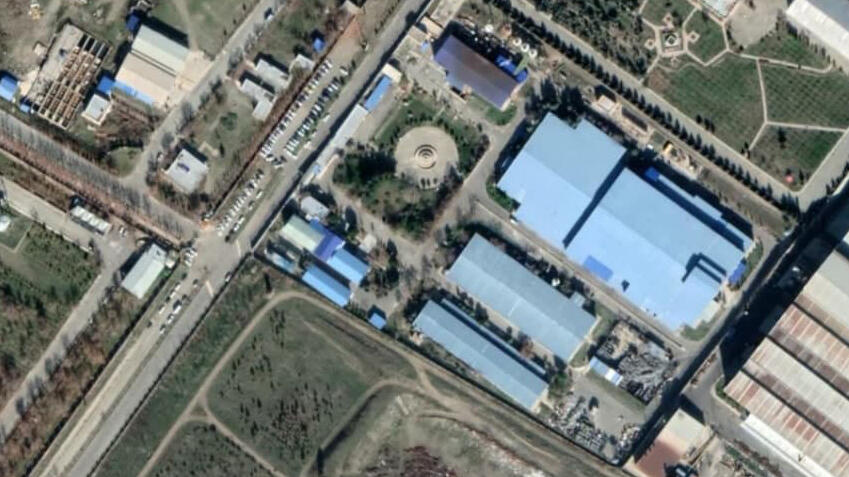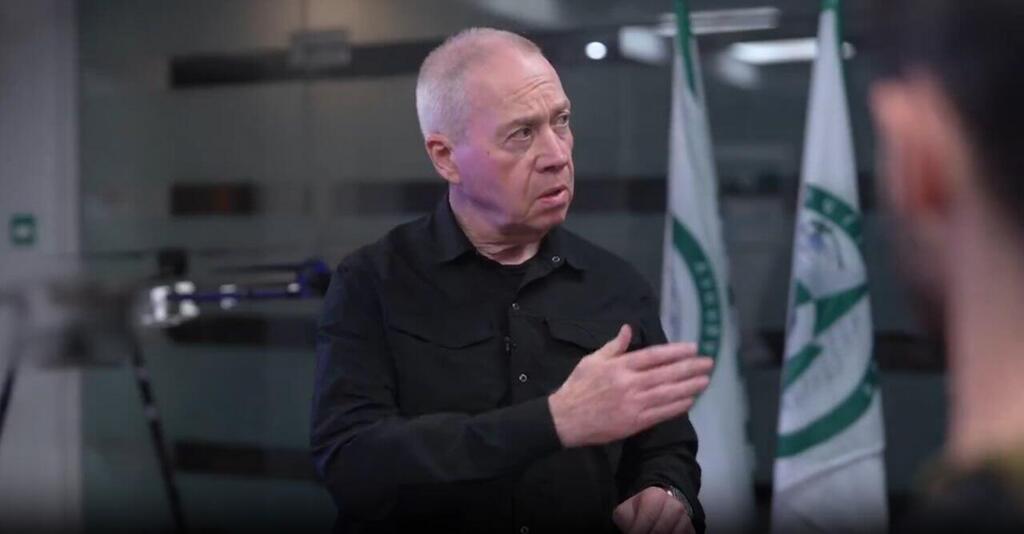Getting your Trinity Audio player ready...
The United States will immediately transfer the THAAD missile defense system to Israel to help intercept potential ballistic missile threats from Iran, Ynet learned on Saturday, as tensions escalate in the region.
The move comes in light of Israel's request to Washington to increase its power projection by sending additional military assets to the region, as well as providing assistance with air defense systems.
4 View gallery


THAAD missile defense system battery
(Photo: AFP PHOTO / HANDOUT / DVIDS / US ARMY / Staff Sergeant Cory D. Payne)
Meanwhile, Tehran anxiously braces for a possible Israeli retaliation following its recent missile strike on Israel, according to CNN.
Iran has been engaging in urgent diplomatic efforts with regional countries to mitigate the scale of Israel’s expected response and possibly secure protection for the Iranian capital. Tehran’s heightened concern stems from uncertainty over the U.S.' ability to persuade Israel not to target critical Iranian nuclear or oil infrastructure.
Washington has been in continuous discussions with Jerusalem since the Iranian strike, with U.S. officials urging Israel to avoid targeting strategic sites in Iran, particularly as the U.S. presidential election nears. President Joe Biden, in his first conversation with Prime Minister Benjamin Netanyahu in weeks, called for a "proportional" Israeli response.
Meanwhile, U.S. allies in the Gulf, including Qatar, Bahrain and the United Arab Emirates, have assured both Iran and Washington that they will not permit Israel to use their airspace for strikes on Iran. While these nations wish to avoid involvement in the conflict, they recognize that an escalation could impact the entire region.
4 View gallery


Prime Minister Benjamin Netanyahu, US President Joe Biden, Iranian Supreme Leader Ali Khamenei
(Photo: REUTERS/Evelyn Hockstein)
Despite ongoing discussions, Israeli officials have yet to make a final decision on whether to strike Iran. Some U.S. officials have expressed concerns about Israel’s transparency, with reports suggesting Israel has not provided assurances that it will refrain from attacking Iranian nuclear or oil facilities.
A response to the response
Washington does not believe Iran seeks a full-scale war with Israel, despite Tehran’s recent missile strikes and the rhetoric from some officials. Iranian Foreign Minister Abbas Araghchi said in an interview with Al Jazeera this week that Netanyahu "is the only one who wants a war and to set the region on fire to stay in power.”
Despite such statements, a U.S. official said Washington is indirectly urging Iran to calibrate its response if Israel launches an attack on Iranian soil. Qatar has been playing a key role as a mediator between Iran and other parties throughout the ongoing conflict.
However, the U.S. acknowledges uncertainty surrounding Iran’s next moves. "We just do not know what [Iran] will do,” one U.S. official told CNN, noting that key voices in Tehran likely have differing opinions on whether and how to respond to any potential Israeli action. Another Biden administration official added that Iran’s reaction will "depend on the scale and scope of the highly anticipated Israeli move." Talks between the U.S. and Iran have continued regularly since Iran’s ballistic missile barrage on Israel.
Gallant's threat
Shortly after the call between Netanyahu, Biden and U.S. Vice President Kamala Harris, Defense Minister Yoav Gallant said that while Iran’s missile strike was "aggressive but inaccurate," Israel's response would be "lethal, precise and above all, surprising. They won’t know what hit them, and they will see the results."
Gallant made the remarks while visiting the IDF’s Unit 9900, a visual intelligence unit under the Military Intelligence Directorate, which is actively involved in preparing for strikes in Lebanon and other theaters.
Gallant received a briefing on recent and upcoming operations, saying, "Thanks to you, we see the entire Middle East—Iran, Lebanon, Syria, Yemen, Iraq and any other place we want to focus on."
Ahead of his trip to the United States in the coming days, Gallant’s travel approval was contingent on two conditions set by Netanyahu, one of which was a conversation with Biden, following weeks of silence between the two leaders despite escalating tensions on Israel's northern front. This is seen as a sign of the strained relations between Netanyahu and Biden.
Get the Ynetnews app on your smartphone:





